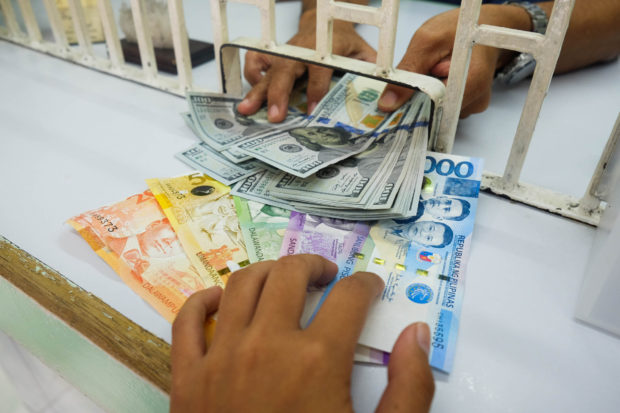Feb remittances at 9-month low of $2.86B, says BSP
MANILA -Personal remittances sent to the Philippines by Filipinos abroad increased by 2.4 percent to $2.86 billion in February from $2.79 billion in the same month last year, the lowest amount in nine months or since the $2.7 billion in May 2022, according to the Bangko Sentral ng Pilipinas (BSP).
The February growth rate was also the slowest in seven months or since the 2.3 percent last July, but better than the 1.4 percent recorded in February last year.
Michael Ricafort, chief economist at Rizal Commercial Banking Corp., said cash remittances in February alone shrank to a nine-month low amid risks of recession in the United States that weighed down on some jobs, including those of overseas Filipino workers (OFWs).
“The slowdown in OFW remittances data may also have to do with the relatively higher prices or cost of living in major host countries for OFWs that fundamentally reduced the remittances sent back to the Philippines,” Ricafort said.
US banks
Of the amount received in February, 90 percent represented cash that overseas OFWs sent through banks.
This was pegged at $2.57 billion, an increase of 2.4 percent from $2.51 billion in the same month last year.
Similarly, the latest cash readout was better than the 1.3-percent growth recorded in February 2022.
The BSP said banks that were registered in the United States posted the highest share of Philippines-bound remittances, followed by those in Saudi Arabia. Singapore and Qatar.
Results for February brought the two-month inflows to $5.93 billion, which was higher by 3 percent than the $5.76 billion in the comparable period in 2022.
Modest growth
Cash remittances alone also grew by 3 percent to $5.33 billion in January-February from $5.18 billion in the same period a year ago.
Ricafort said that for the coming months, modest growth in OFW remittances could continue as OFWs’ dependents still need to cope with relatively higher inflation locally that would require the sending of more remittances, as well as some normalization of spending by households for both essentials and nonessentials as the economy reopened toward greater normalcy.”
He added that continuing concerns about a possible recession in the United States would still be a drag for OFW remittances in the coming months, especially if there would be job losses for some OFWs. INQ
READ MORE:
https://business.inquirer.net/391229/remittances-grew-3-5-to-3-07b-in-january

